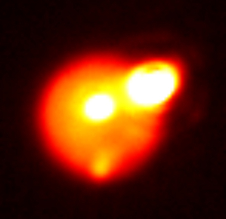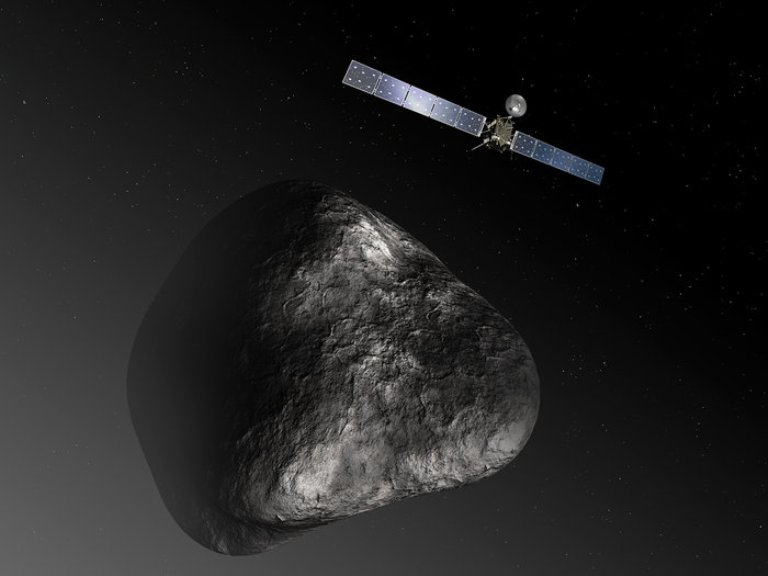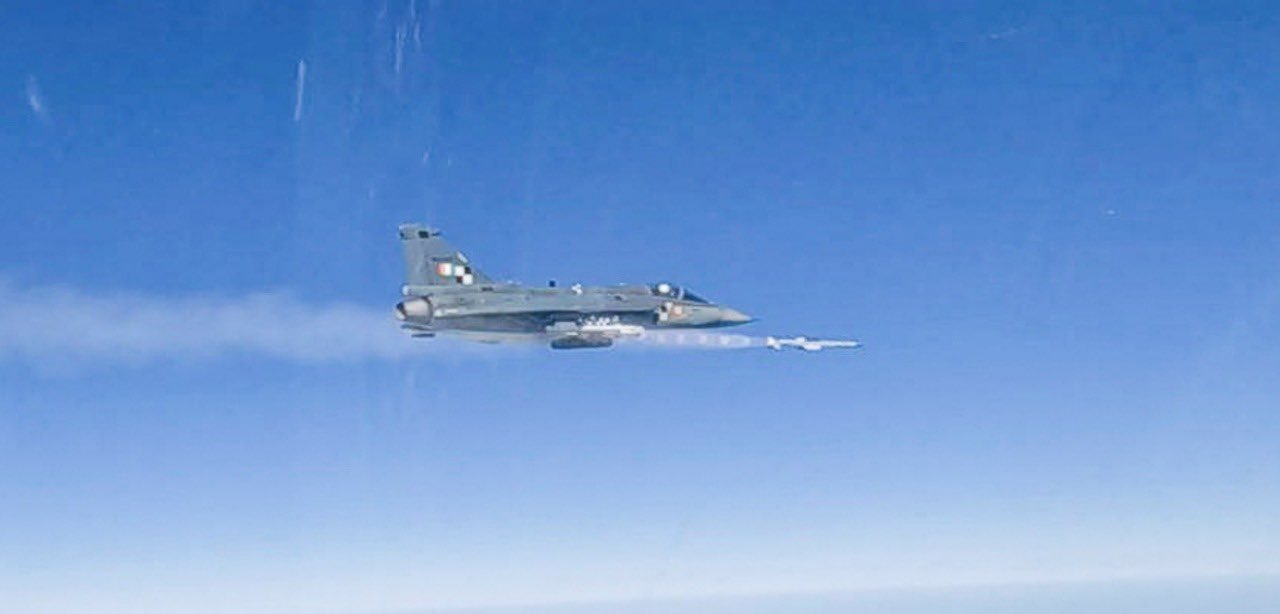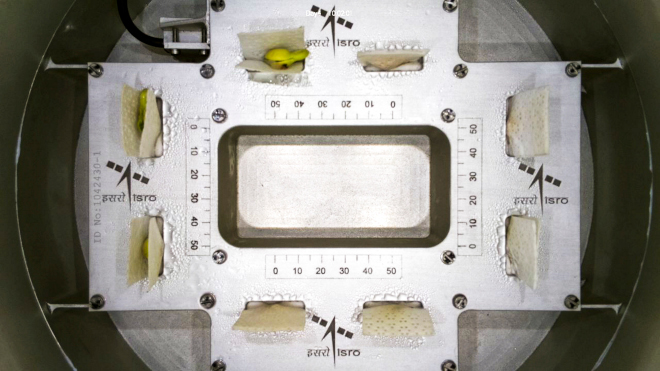
This Aug. 29, 2013, outburst on Jupiter's moon Io was among the largest ever observed on the most volcanically active body in the Solar System. Image Credit: Katherine de Kleer/UC Berkeley/Gemini Observatory
WASHINGTON (BNS): A group of astronomers has observed three back-to-bark massive volcanic eruptions on Jupiter's moon Io within a two-week period, suggesting that such violent outbursts in the distant celestial body could be much more common than previously assumed.
The volcanic eruptions, which can send material hundreds of miles above the moon's surface, were detected in August last year.
"We typically expect one huge outburst every one or two years, and they're usually not this bright. Here we had three extremely bright outbursts, which suggest that if we looked more frequently we might see many more of them on Io," said Imke de Pater, professor and chair of astronomy at the University of California, Berkeley, and lead author of one of two papers describing the eruptions.
Lo is the innermost of Jupiter's four large "Galilean" moons and is about 3,630 kilometers. Aside from Earth, it is the only known place in the Solar System with volcanoes erupting extremely hot lava like that on Earth.
Because of Io's low gravity, large eruptions produce an umbrella of debris that rises high into space.
The latest eruptions, while matching similar events in the past that spewed tens of cubic miles of lava over hundreds of square miles in a short period of time, are also relatively rare because of their size and astonishingly high thermal emission, according to coauthor Ashley Davies.
All three events, including the largest, most powerful eruption of the trio on Aug. 29, 2013, were likely characterized by "curtains of fire" as lava blasted out of fissures perhaps several miles long.
Volcanoes were first discovered on Io in 1979. Subsequent studies by NASA's Galileo spacecraft, which first flew by Io in 1996, and ground-based telescopes revealed that eruptions and lava fountains occurred constantly, creating rivers and lakes of lava.
The eruptions on Io are likely similar to those that shaped the surfaces of inner Solar System planets such as Earth and Venus in their youth.
"We are using Io as a volcanic laboratory, where we can look back into the past of the terrestrial planets to get a better understanding of how these large eruptions took place, and how fast and how long they lasted," Davies said.
Their study will appear in the journal Icarus.
 Previous Article
Previous Article Next Article
Next Article











The Indian Air Force, in its flight trials evaluation report submitted before the Defence Ministry l..
view articleAn insight into the Medium Multi-Role Combat Aircraft competition...
view articleSky enthusiasts can now spot the International Space Station (ISS) commanded by Indian-American astr..
view article